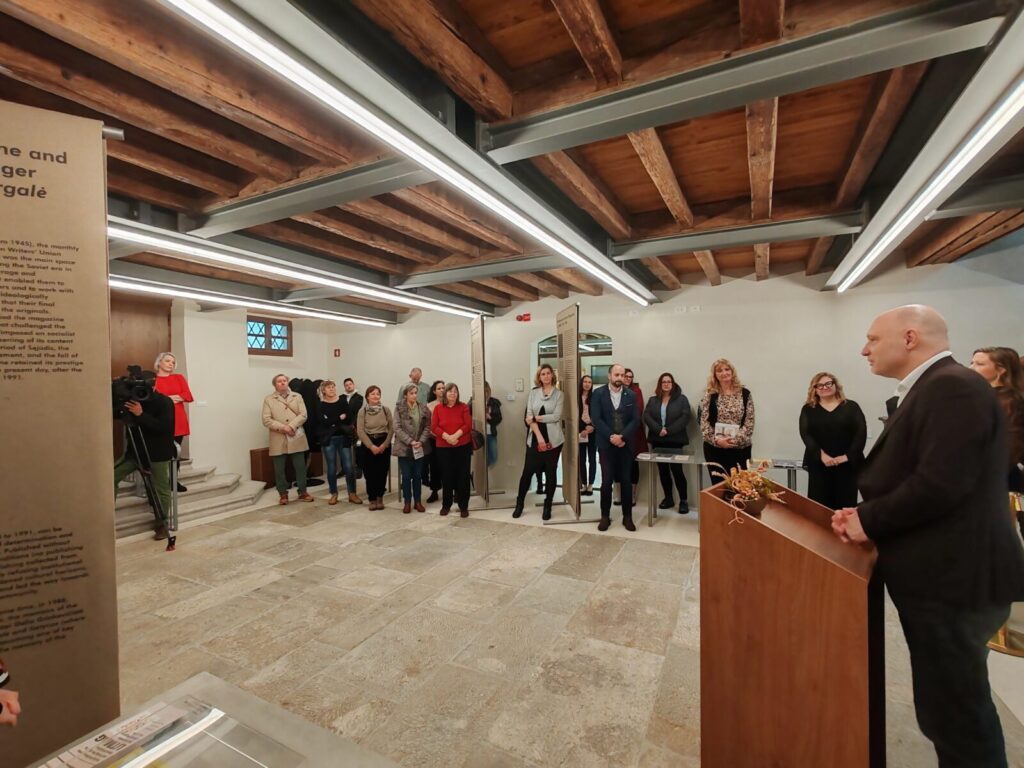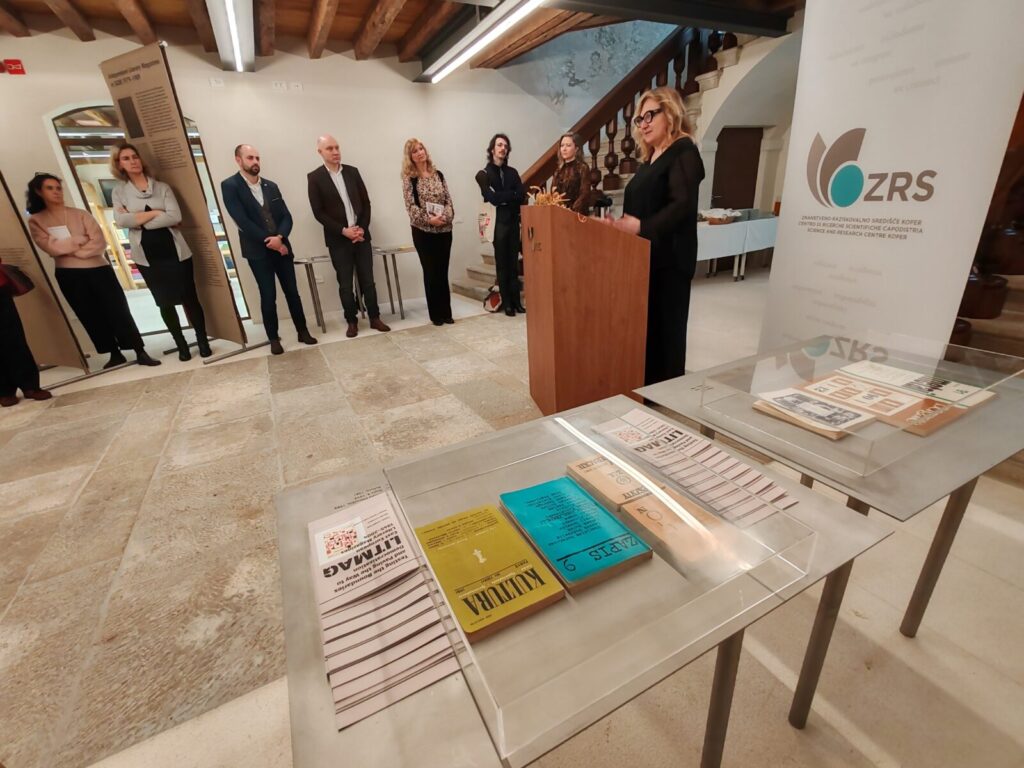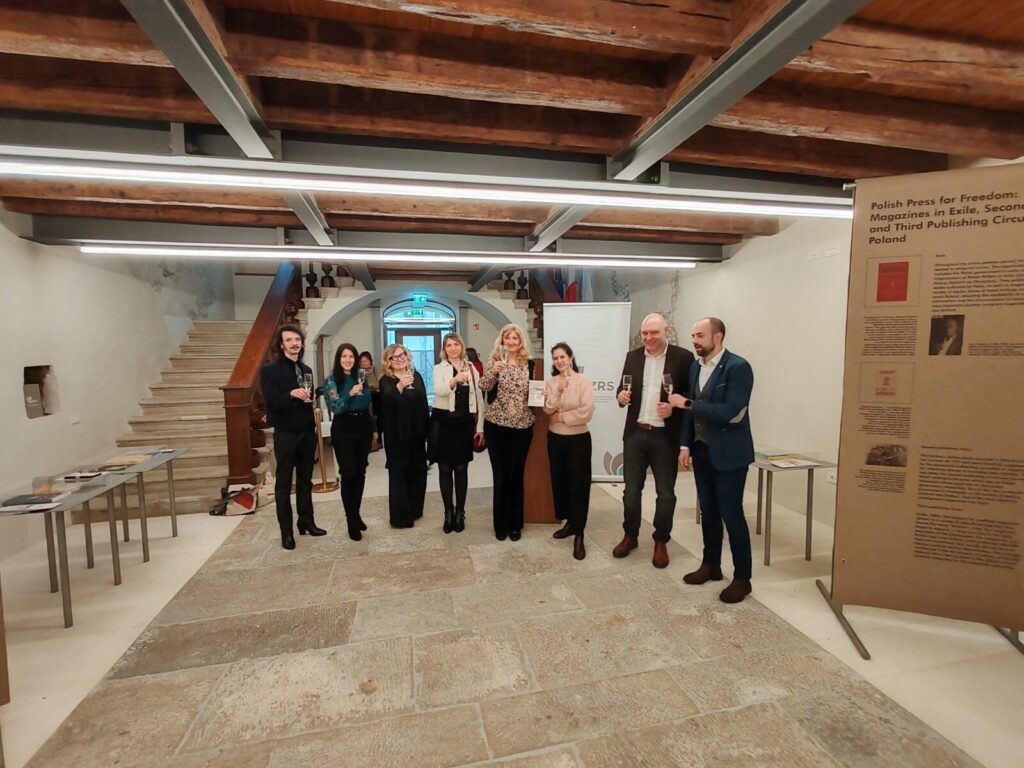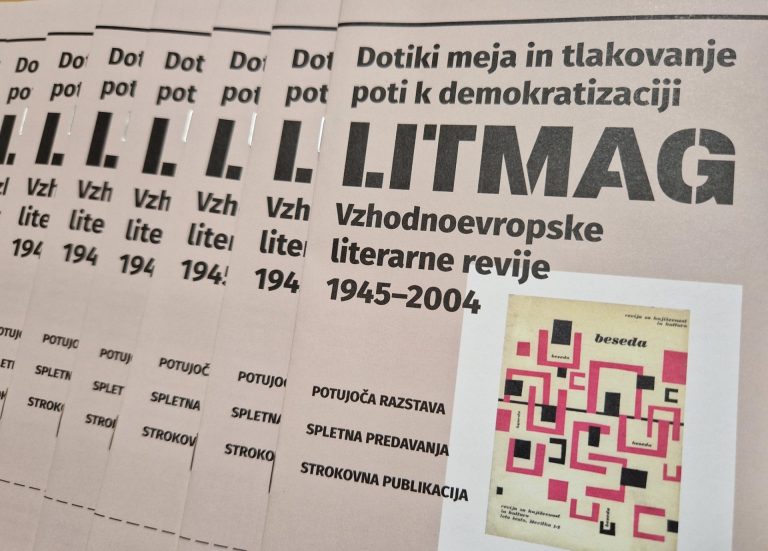On 1March 2024, the ceremonial inauguration of the travelling exhibition took place at the Centre for Humanities at ZRS Koper as part of the international LITMAG project (East European Literary Magazines 1945-2004: Testing the Boundaries and Paving the Way to Democratisation, Project No.: 101051192 – LITMAG), which brings together eight partners from various European countries. The aim of the exhibition is to fill the gaps in the field of European literary magazines, analyse them and raise public awareness of their role in European history. Especially significant in this context are the exhibited magazines La Battana, Most, and Zaliv (by the Trieste writer and academic Boris Pahor), which served as a refuge for many intellectuals and dissidents of the time.

Visitors were initially welcomed by the deputy director of ZRS Koper, Dr Tilen Glavina, who also outlined the history of the palace, while more details about the project were provided by Mitja Čander, director of the publishing house Beletrina, the initiator and leading partner of the project. The Eastern European literary magazines displayed and their socially engaged, often subversive role were thoroughly presented by Dr Sergia Adamo, project coordinator of LITMAG at the Department of Humanities of the University of Trieste, doctoral student of the same department Iwan Paolini and Dr Vesna Mikolič, project coordinator of LITMAG at the Institute for Linguistic Studies at ZRS Koper.

The LITMAG project focuses on the analysis of Eastern European literary magazines after World War II, which opposed authoritarian regimes and significantly influenced democratisation and the approach to the European Union.
The main partner of the project is the publishing house Beletrina, while other partners include the Museum of Contemporary History of Slovenia (Slovenia), the University of Salzburg (Austria), the University of Bielsko-Biala (Poland), the University of Pécs (Hungary), the Directorate of Memorial Museums in Vilnius – Venclovas House-Museum (Lithuania), the University of Trieste (Italy) and the Science and Research Centre Koper (Slovenia).

The exhibition will also be hosted in other European countries and will be supported by online conferences and a specialised publication, scheduled for March 2024 to coincide with the conclusion of the project.
The exhibition will remain open until 22 March 2024.

“Funded by the European Union. Views and opinions expressed are however those of the author(s) only and do not necessarily reflect those of the European Union. Neither the European Union nor the granting authority can be held responsible for them.”
 en
en Slovenščina
Slovenščina Italiano
Italiano